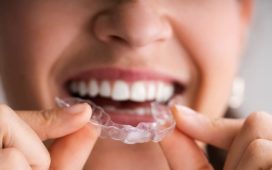Introduction:
In recent years, there has been a growing concern regarding the potential link between kidney disease and the consumption of gym supplements. While these products are often marketed as enhancing athletic performance and muscle growth, emerging research suggests that certain ingredients found in gym supplements may pose risks to kidney health. In this comprehensive guide, we delve into the evidence surrounding the association between kidney disease and gym supplements, highlighting key factors, potential risks, and recommendations for safer supplement use.
Understanding Kidney Disease:
The kidneys play a crucial role in filtering waste products and excess fluids from the blood, regulating electrolyte balance, and producing hormones essential for various bodily functions. Kidney disease occurs when the kidneys are damaged and unable to perform their functions adequately, leading to the accumulation of toxins and fluids in the body. Chronic kidney disease (CKD) is a progressive condition that can eventually lead to kidney failure if left untreated.
The Rise of Gym Supplements:
With the increasing popularity of fitness culture and the pursuit of athletic goals, the use of gym supplements has become widespread. These products, which include protein powders, creatine, pre-workout formulas, and amino acid supplements, are often marketed as aids for muscle building, energy enhancement, and recovery.
The Link Between Kidney Disease and Gym Supplements:
While many gym supplements are considered safe when used as directed, certain ingredients commonly found in these products have raised concerns regarding their potential impact on kidney health:
- Creatine: Creatine is a naturally occurring compound that helps supply energy to muscles during high-intensity exercise. While short-term use of creatine supplements is generally considered safe, long-term supplementation or high doses may increase the risk of kidney damage, particularly in individuals with pre-existing kidney conditions.
- Protein Supplements: High-protein diets and protein supplements are popular among athletes and bodybuilders for muscle building and recovery. However, excessive protein intake can strain the kidneys, leading to kidney damage or exacerbating existing kidney conditions, such as CKD.
- Herbal and Dietary Supplements: Many gym supplements contain herbal extracts, botanicals, or proprietary blends of ingredients that lack regulation and may contain potentially harmful substances. Some herbal supplements have been associated with kidney toxicity or adverse effects on renal function.
Factors Contributing to Kidney Damage:
Several factors may contribute to the development of kidney damage or kidney disease in individuals using gym supplements:
- Dehydration: Intense exercise and high-protein diets can increase fluid loss and dehydration, placing additional stress on the kidneys.
- Excessive Protein Intake: Consuming more protein than the body needs can overload the kidneys and lead to the accumulation of waste products.
- Pre-Existing Health Conditions: Individuals with pre-existing kidney conditions, such as CKD, diabetes, or hypertension, may be more susceptible to kidney damage from gym supplements.
- Unregulated Ingredients: The lack of regulation and oversight in the supplement industry raises concerns about the safety and quality of ingredients used in gym supplements, increasing the risk of adverse effects, including kidney damage.
Signs and Symptoms of Kidney Damage:
Recognizing the signs and symptoms of kidney damage is crucial for early detection and intervention. Common indicators of kidney dysfunction may include:
- Changes in urination frequency or volume
- Blood in the urine
- Swelling in the legs, ankles, or face
- Fatigue and weakness
- Nausea, vomiting, or loss of appetite
- High blood pressure
- Persistent itching or skin rashes
Preventive Measures and Recommendations:
To reduce the risk of kidney damage associated with gym supplements, consider the following preventive measures and recommendations:
- Stay Hydrated: Drink an adequate amount of water before, during, and after exercise to maintain hydration and support kidney function.
- Use Supplements Wisely: Consult with a healthcare professional or registered dietitian before starting any supplement regimen, and choose reputable brands with transparent labeling and quality assurance.
- Monitor Protein Intake: Aim for a balanced diet that includes adequate protein from a variety of sources, and avoid excessive reliance on protein supplements.
- Monitor Kidney Health: Regularly monitor kidney function through blood tests and urinalysis, especially if you have pre-existing kidney conditions or risk factors.
- Listen to Your Body: Pay attention to any changes in urination, energy levels, or overall health, and seek medical attention if you experience concerning symptoms.
Consulting a Kidney Specialist:
If you have concerns about kidney health or are experiencing symptoms of kidney dysfunction, it’s essential to seek guidance from a qualified healthcare professional, such as a kidney specialist. A kidney specialist, also known as a nephrologist, is trained to diagnose, treat, and manage kidney-related conditions, providing personalized care and treatment recommendations based on individual needs.
Conclusion:
The potential link between kidney disease and the use of gym supplements underscores the importance of informed decision-making and cautious supplement use. While gym supplements can be beneficial when used appropriately, it’s crucial to prioritize kidney health and minimize potential risks. By staying informed, practicing moderation, and seeking guidance from healthcare professionals, individuals can safely navigate the world of gym supplements while protecting their kidney health for the long term.







